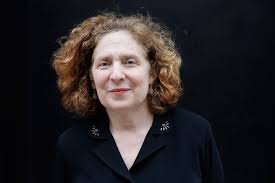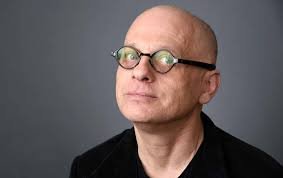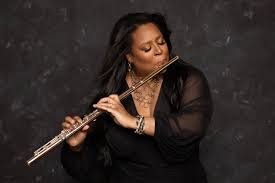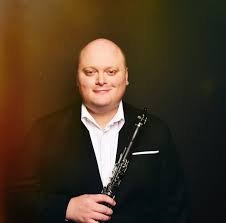The GRAMMY-winning quintet Imani Winds joins Agarita for a powerful collaborative evening featuring renowned poet Naomi Shihab Nye and contemporary dancer Tanesha Payne of sumRset dance company at the UIW Diane Bennack Concert Hall. This assembly of artists promises to be an epic season finale.
Imani Winds
appearance sponsored by Russell Hill Rogers Fund for the Arts
FEATURING
Isabelle Ai Durrenberger, Violin | Jeremy McCoy, Bass
Tanesha Payne, Dance | Naomi Shihab Nye, Poetry
PROGRAM
Aaron Copland | Appalachian Spring | Introduction of Characters | Display of Action
Maurice Ravel | Le Tombeau de Couperin | Prelude | Minuet | Rigaudon
Reena Esmail | Saans
Julia Woolfe | Blue Dress for String Quartet
David Lang | sweet air
Mark Dover | I am, Here Now!
Valerie Coleman | Red Clay & Mississippi Delta
Aaron Copland | Appalachian Spring | Reprise of the Introduction | Shaker theme, "The Gift to Be Simple" and Variations | Coda
Stevie Wonder arr. Mark Dover | Overjoyed
Donnie Hathaway arr. Mark Dover | Someday We’ll All Be Free
FOR A FULL LIST OF OUR SUPPORTERS AND TO SUPPORT AGARITA, CLICK ON THE LINK BELOW.
Biography
Imani Winds is the 2024 GRAMMY® winner in the Classical Compendium category for Jeff Scott’s “Passion for Bach and Coltrane” released on their recently formed record label, Imani Winds Media.
Celebrating over a quarter century of music making, the four time GRAMMY® nominated group has led both a revolution and evolution of the wind quintet through their dynamic playing, adventurous programming, imaginative collaborations and outreach endeavors that have inspired audiences of all ages and backgrounds.
The ensemble’s playlist embraces traditional chamber music repertoire, and newly commissioned works from icons to new voices reflectly the times in which we live.
Recent and upcoming projects include a new double quintet by Arturo Sandoval, featuring Boston Brass; a Jessie Montgomery composition inspired by her great-grandfather’s migration from the American south to the north; and a work by Carlos Simon celebrating iconic figures of the African American community. These commissioned works and more are a part of the long-standing Legacy Commissioning Project. Reflecting on the issues of mass incarceration, Imani Winds 11th studio recording, “BeLonging” by and with Andy Akiho, was released in June 2024 and is nominated for a 2025 GRAMMY® award.
Twenty-seven seasons of full-time touring has brought Imani Winds to virtually every major chamber music series, performing arts center, and summer festival in the U.S. They regularly perform in prominent venues including Carnegie Hall, Lincoln Center, and the Kennedy Center and have a presence at festivals such as Chamber Music Northwest, Chautauqua Institution and Banff Centre.
Imani Winds thoughtfully curates unique residencies that include performances, workshops, and masterclasses to thousands of students each year at institutions such as the University of Chicago, Eastman School of Music and Duke University.
Their international presence includes concerts throughout Asia, Brazil, Australia, England, New Zealand and Europe.
Appointed in 2021 as Curtis Institute of Music’s first ever Faculty Wind Quintet, Imani Winds commitment to education runs deep. The highly successful Imani Winds Chamber Music Festival launched in 2010, is an annual summer program devoted to musical excellence and career development for pre-professional instrumentalists and composers. The curriculum includes mentorship, masterclasses, entrepreneurial workshops, community engagement activities and performances, with the goal of fostering the complete musician and global citizen.
In 2019, the group extended their mission even further by creating the non-profit organization, Imani Winds Foundation, which exists to support, connect and uplift their initiatives and more.
Imani Winds’ travels through the jazz world are highlighted by their multi-faceted association with luminary musicians and composers Wayne Shorter, Paquito D’Rivera and Jason Moran. Their ambitious project, "Josephine Baker: A Life of Le Jazz Hot!" featured jazz songstress René Marie in performances that brought the house down in New York, Pittsburgh, San Francisco, Los Angeles and St. Louis.
In 2021, Imani Winds released their 9th studio album, “Bruits” on Bright Shiny Things Records, which received a 2022 GRAMMY® nomination for “Best Chamber Music/Small Ensemble Performance.” Gramophone states, “the ensemble’s hot rapport churns with conviction throughout.”
Imani Winds has recordings on Koch International Classics and E1 Music, including their 2006 GRAMMY® nominated recording, “The Classical Underground”. They have also recorded for Naxos and Blue Note and released an acclaimed arrangement of Stravinsky’s "Rite of Spring" on Warner Classics. They are regularly heard on all media platforms including NPR, American Public Media, the BBC, SiriusXM, the New York Times and the Wall Street Journal.
To date, one of Imani Winds’ most humbling recognitions is a permanent presence in the classical music section of the Smithsonian National Museum of African American History and Culture in Washington DC.
Featuring
American violinist Isabelle Ai Durrenberger is praised for her imaginative, striking performances and her ability to communicate with sincere artistry. Currently based in New York City, Isabelle was recently appointed first violinist of the renowned Aeolus Quartet and served as a 2023-25 fellow of Carnegie Hall’s Ensemble Connect program.
An avid chamber musician, Isabelle is recognized nationally for her unique collaborative instincts. Her 2024-25 season features solo and collaborative invitations including performances with the Boston Chamber Music Society, Jupiter Chamber Players (NYC), Orpheus Chamber Orchestra in Carnegie Hall (NYC), THe Knights (NYC), and the Grammy-nominated conductorless chamber orchestra, A Far Cry (Boston).
In 2022, she completed her graduate studies at the New England Conservatory in Boston with Soovin Kim and Don Weilerstein. Isabelle spent recent summers making chamber music at the Marlboro Music Festival, Lake Champlain Chamber Music Festival, and Four Seasons Spring Workshop.
Isabelle also enjoys exploring music through teaching: she has a private violin studio in New York City and serves on the violin faculty at the New England Conservatory Preparatory School in Boston where she teaches violin lessons and coaches chamber music.
Born in Toronto and raised in Ottawa, Canada, Jeremy McCoy received his earliest musical training on the piano and as a chorister. He was first introduced to double bass in middle school and, through high school, studied privately with David Currie. Summers spent at Interlochen and with the National Youth Orchestra of Canada included lessons and orchestral coaching with Oscar Zimmerman, Winston Budrow and Thorvald Fredin.
With assistance from the Canada Council for the Arts, Jeremy continued his studies at the Curtis Institute of Music with Roger Scott, earning a Bachelor of Music degree. While at Curtis, the school orchestra toured to Europe and performed with legendary conductors Leonard Bernstein and Sergiu Celibidache. Another highlight of Jeremy’s student years was the opportunity to work with maestro Klaus Tennstedt as Principal bass of the Canadian Chamber Orchestra. At age twenty, Jeremy won a position with Canada’s National Arts Centre Orchestra. The following season he joined the Metropolitan Opera Orchestra. Over the course of thirty-five seasons, Jeremy played more than 5,000 Met performances under music directors James Levine and Yannick Nézet-Séguin, guest conductors Carlos Kleiber, Kirill Petrenko, Seiji Ozawa, Ricardo Muti, Daniele Gatti, Simon Rattle, Christian Thielemann, Daniel Barenboim and others. He retired from his chair as Assistant Principal double bass in May, 2020.
Apart from his orchestral career, Jeremy has appeared in recital at Lincoln Center, on CBC Radio and for the International Society of Bassists. He has performed as concerto soloist with the Atlantic Chamber Orchestra, the Louisiana Philharmonic, Classical Tahoe, the Ottawa Symphony Orchestra and Musica Viva of New York. As a chamber musician, he has collaborated with members of the Arditti, Borodin, Cleveland, Emerson, Guarneri, Juilliard and Tokyo string quartets and with many other eminent and emerging artists. His summer festival appearances include Marlboro, Mostly Mozart, Rockport Music, Banff, Classical Tahoe, Kneisel Hall, Grand Tetons, Bowdoin, Festival Napa Valley, Close Encounters with Music, Lincoln Center Festival, Affinis Festival (Japan), Appalachian Summer Festival, Ottawa International Music Festival, Music and Beyond, Music Festival of the Hamptons and Cooperstown Chamber Music Festival.
With the New York City contemporary music groups Speculum Musicae, Sequitur and Ensemble Sospeso, Jeremy has taken part in many premiere performances and recorded chamber works by modern masters including Elliott Carter, David Del Tredici and Thomas Ades.
Jeremy has performed on symphonic and operatic recordings, several of which won Grammys, for Deutsche Grammophon, Sony, London-Decca, Phillips, Erato and CBC Records and chamber works for Koch Classics, Albany, Naxos, CRI, Mode Records and Concord Jazz. As a studio session player, he has performed as both solo bassist and section leader on dozens of feature film soundtracks and recorded string tracks for a diverse group of popular artists including Bruce Springsteen, David Byrne, Lou Reed, Sting and Natalie Merchant. Jeremy’s two solo recordings have garnered both popular and critical praise. An eclectic collection of duos, Dialogues with Double Bass, was released on Bridge Records in 2005. Baroque Legacy (2012), featuring the gamba sonatas of JS Bach, is available on MSR Classics.
While based in New York City, Jeremy served on the faculties of the Manhattan School of Music, Bard College Conservatory of Music, the Cali School of Music at Montclair State University, Columbia and Penn State Universities, Queen’s College CUNY, the National Youth Orchestra of Canada and Bowdoin International Music Festival. He has presented master classes at leading schools of music across the United States, in Canada, Sweden and Japan and written articles for Strings Magazine. Now making his home in San Antonio, Texas, Jeremy teaches privately and performs both locally and away. His institutional and private students hold positions with orchestras throughout North America, Europe, Australia and East Asia and have made careers in both college and public school music education.
Jeremy performs on an exceptional instrument made by the Venetian luthier Domenico Busan and on double basses by Alfred Meyer of Markneukirchen, Germany and Tetsu Suzuki, Cremona, Italy. He uses strings from Pirastro.
As a movement artist based in San Antonio, TX, Tanesha Payne (she/they) performs, creates, educates, and advocates for all things dance. Tanesha is the founder and artistic director of sumRset Dance, a professional contemporary dance company based in Bexar County. She holds a BFA in Dance Studies from Texas State University and graduated Summa Cum Laude with her MFA in Choreography from Jacksonville University. Most recently, Tanesha was awarded an Individual Artist Grant for the 2024 cycle, completed her second year as a Wolf Trap teaching artist, and is serving as an Artist at Work in San Antonio.
Naomi Shihab Nye was the Young People's Poet Laureate of the United States (Poetry Foundation) from 2019-2022 and was poetry editor of the New York Times Magazine in 2019 and 2020. She has been a visiting writer in hundreds of venues for many years and is currently on faculty at Texas State University. Her most recent books include The Turtle of Michigan, The Turtle of Oman, Dear Vaccine (co-editor), The Tiny Journalist, Everything Comes Next (Selected & New Poems), Cast Away (poems about trash), and Voices in the Air - Poems for Listeners.
Program Notes
Aaron Copland (1900-1990) had an incredibly varied career as a composer, pianist, conductor, critic, educator and more, and became the most respected American composer of the 20th century. Although the stylistic range varied tremendously and eventually included the atonal, serialist methods of Arnold Schoenberg, by far his most popular and lasting music was produced during the 1930s and 1940s. Using accessible harmonies, American folk melodies and approachable textures, his music throughout these two decades (Billy the Kid, Rodeo, Fanfare for the Common Man, and Appalachian Spring) were approachable hits that shaped his legacy as the composer who most closely evoked the ‘American spirit.’ The work was originally a ballet for Martha Graham and her ballet company, but the music has stood on its own, especially in its more concise, 13-instrument version (even less instruments than that on tonight’s program). The wide-open, majestic introduction and playful, exuberant call to action invite the listener into Copland’s colorful music world right away, but the real gem of the work is his variations on the Shaker tune “Simple Gifts,” which blooms so organically that you will find yourself craving another listen minutes, months, and years after this concert.
20th-century French composer Maurice Ravel (1875-1937) created music that was at once incredibly vulnerable and structurally immaculate. Obsessed with formal clarity and textural balance, it’s no wonder that an homage to the 18th-century Baroque composer Francois Couperin would suit him perfectly. Le Tombeau de Couperin, however, is a double homage. Profoundly affected by his horrific experiences in World War I, Ravel dedicated the work to his deceased fellow soldier. Across the light-hearted, jovial Baroque dances are layers of tragic innocence; there is a pain inside the beauty, and often the music in major keys are ones with the most tears. Ravel was as revered of an orchestrator as he was a composer, and his orchestration of Le Tombeau, originally a solo piano work, feels like a brand-new piece in its unique, captivating instrumentation. As a student of Ravel’s once wrote, “This metamorphosis of piano pieces into symphonic works was a game for Ravel, a game played to perfection, so that the transcription outdid the charm of the original” (Alexis Roland-Manual). And so, it is all the more impressive that Australian clarinetist and composer Paul Dean recently managed to capture the profound elegance and contrapuntal clarity of Le Tombeau with his arrangement for Woodwind Quintet, String Quartet, and Double Bass.
Reena Esmail (b. 1983) is an Indian-American composer whose refreshing compositional voice occupies a liminal space. Often blending the improvisatory, open sounds of ragas and other modal styles with more traditional classical musical structures, Esmail delivers poetic works that are inviting, rich, and invite reflection. About her works Saans (Breath), she writes:
In recent years, I’ve realized how deeply inspired I am to write music by the very people I write it for. I’ve always found the story of the Franck Violin Sonata as incredibly moving and romantic as the music itself: Franck wrote the sonata for Ysaye and his wife as a wedding present, and they premiered it at the wedding, sight reading through the score. It is one of my favorite pieces of all time, and the love and intention with which it was written resonates so deeply through the music. As I was finishing my Clarinet Concerto for Albany Symphony in April, I was also planning my trip to Paris for one of my closest friends, Suzana Bartal‘s wedding. As the two women in our year of the Yale DMA program, we supported each other unconditionally through some of the toughest moments of our lives, celebrated our accomplishments with each other, and developed a deep and lasting friendship. As I wrote my last commission of the season, I saw that the slow movement of my Clarinet Concerto could actually be turned into a piano trio as a wedding gift to Suzana and her husband Eric. Suzana is a world class concert pianist, and one of her chamber music specialties is playing piano trios. Our story ended up a little differently from Cesar Frank’s: as I was at Suzana and Eric’s wedding, this trio, in an amazing coincidence, was actually being premiered in Los Angeles on the same day. Even though it was performed a world away, it made me so happy that was premiered by and for some of my dearest friends in Los Angeles.
A beautiful addendum to this story: two years later, Suzana played this trio for the first time in the United States at a concert at the Wallis Annenberg Performing Arts Center, in Beverly Hills, CA, with cellist Peter Myers and violinist Vijay Gupta. And the next day Vijay and I got married. I love that this one piece has played a central role in both of our weddings.
Blue Dress by American composer Julia Wolfe (b. 1958) is a powerful representation of her compositional voice. Her music tends to lean minimalistic in structure, with repeated patterns that gradually intensify and develop in complexity over a long stretch. It is often raw and intense, every note full of intention and purpose. About her raucous work Blue Dress, she writes:
My love of American folk music blossomed in the 1980s when I lived in Ann Arbor, Michigan. Ann Arbor is a big folk town with amazing musicians of all kinds. I started to play mountain dulcimer and accompanied myself singing. I picked up the bones, played folk guitar, and assisted an instrument builder in making psaltries. Many of my compositions reference folk songs – like Four Marys (for string quartet) and Cruel Sister (for string orchestra.) For the Bang on a Can All-Stars I wrote Steel Hammer (a deconstruction of the John Henry ballad), and Reeling (featuring Canadian mouth music.) In Blue Dress for String Quartet my folk roots come to the fore with fiddling licks, fragments of song, humming, and bows deep into the string. The work was inspired by a field recording of a woman singing “ pretty little girl with a blue dress on.”
David Lang (b. 1957) is a Pulitzer Prize-winning American composer and co-founder of the NYC-based musical collective Bang on a Can. Of a similar musical family as Julia Wolfe, his music tends to be raw, minimal in nature, accessible in tonality, and experimental in instrumentation, with a wink of playfulness. About his work sweet air, Lang himself writes:
During a trip to the dentist my oldest son Isaac was given laughing gas. The dentist called it sweet air, a gentle name to take the fear out of having a cavity filled. It worked. My son experienced something—a drug—so comforting that it made him ignore all signs of unpleasantness. This seemed somehow musical to me. One of music’s traditional roles has always been to soothe the uneasy. I must say I have never been that interested in exploring this role. It is much easier to comfort the listener than to show why the listener might need to be comforted. My piece ”sweet air” tries to show a little bit of both. In ”sweet air,” simple, gentle musical fragments float by, leaving a faint haze of dissonance in their wake.
Former flutist for and founding member of Imani Winds, Valerie Coleman has steadily become one of the most celebrated composers of our time and was most recently appointed to the Composition Department faculty at The Juilliard School. Her works are immediately appealing for their folk-inspired melodies and rhythms, and loosen up listeners with their infectious grooves. About her short work Red Clay & Mississippi Delta she writes:
Red Clay is a short work that combines the traditional idea of a musical scherzo with living in the South. It referneces the background of my mother’s side of the family that hails from the Mississippi delta region. From the juke joints and casino boats that line the Mississippi river, to the skin tone of the kinfolk in the area: a dark skin that looks like it came directly from the red clay. The solo lines are instilled with personality, meant to capture the listener’s attention as they wail with “bluesy” riffs that are accompanied (‘comped’) by the rest of the ensemble. The result is a virtuosic chamber work that merges classical technique and orchestration with the blues dialect and charm of the south.
The clarinetist for Imani Winds since 2016, Mark Dover (b. 1987) is one of the most versatile clarinetists alive. His talents as an improviser stretch from riffing on Mozart cadenzas to jamming at the top New York City jazz clubs to soloing on albums of the American funk bands like Vulfpeck, all with the most respected musicians in each field. His credits as a clarinetist are too many to list, but he more recently has found additional interest and success in the realms of production and arranging. In addition to his lauded arrangement of Stevie Wonder’s Overjoyed, Agarita is honored to be helping to premiere a brand new arrangement of Mark’s commissioned especially for this concert: Someday We’ll All Be Free, by Donnie Hathaway. Both arrangements manage to capture the soul, spirit and style of these legends in the format of a traditional classical instrumentation, and especially feature Kevin Newton, Imani’s horn player, who Dover discovered has a hidden musical talent. His work for bass clarinet and piano, I Am, Here Now, is an original composition that Dover wrote when going through a difficult time. The title was a mantra that was given to him to keep him present and in control. The melody is simple and the chord changes are relatively straightforward – the patient pacing, combined with Dover’s passionate tone and sense of lyricism, form an ocean of expression that leaves nothing unsaid.













